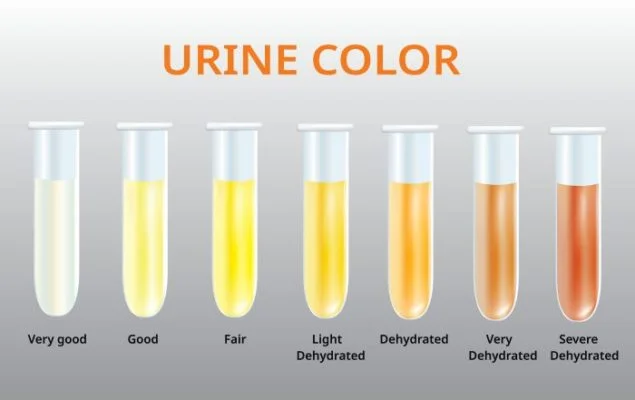How much water should you drink? – IC Fitness Club
Water
Water is considered a macronutrient because it is needed by the body in relatively large amounts to support various physiological processes. It is an essential component of many bodily fluids, including blood, lymph, and interstitial fluid, and is involved in a wide range of functions such as regulating body temperature, transporting nutrients and waste products, and maintaining electrolyte balance.
The human body is composed of approximately 60% water, with different tissues and organs containing varying amounts. For example, the brain and heart are about 73% water, while the lungs are about 83% water. Even bones contain about 31% water.
The amount of water a person needs to consume daily can vary depending on factors such as age, gender, activity level, and climate. In general, the Institute of Medicine recommends that adult men consume about 3.7 liters (125 ounces) of water per day and adult women consume about 2.7 liters (91 ounces) per day, but individual needs may vary.
It is important to maintain proper hydration levels to ensure optimal health and functioning of the body’s systems. Dehydration can lead to a range of negative effects, including fatigue, headache, impaired cognitive function, and decreased physical performance.
How much should you drink?
Water is very essential for each organism on the earth for survival. When it comes to humans, Many claims exist that 5l 6l one should consume in a single day.
But is it really a fact?
No, everyone’s needs are different. For example, when the weather is cold one feels less thirsty and drinks less water whereas when it’s summer, one drinks more water due to high sweating.
Then how can we determine how much should you drink water?
Simply check your urine color; if it’s yellow you are dehydrated and when it’s white you are hydrated.
Too much consumption of water can also be harmful to you and may cause hyponatremia.
when you drink too much water electrolytes leak out from your body through urine.
The body has an equilibrium where the body maintains the fluid level in the body and excretes out excess fluid through Urine.
Hyponatremia
Hyponatremia is a medical condition that occurs when the level of sodium in the blood becomes abnormally low. Sodium is an electrolyte that helps regulate the balance of fluids in the body, and when its level becomes too low, it can disrupt the normal functioning of cells and organs.
There are several different causes of hyponatremia, including excessive fluid intake, kidney problems, certain medications, and medical conditions such as heart failure or liver disease. Athletes who consume excessive amounts of water during endurance events, such as marathons, can also develop hyponatremia.
Steps to check whether you are hydrated or not
Here are some steps you can take to check whether you are hydrated or not:
- Check the color of your urine: One of the simplest ways to check your hydration status is to observe the color of your urine. Clear or light yellow urine indicates that you are well hydrated, while dark yellow or amber-colored urine may indicate dehydration.

- Check the frequency of urination: If you are urinating regularly and your urine output is normal, it is a good sign that you are hydrated.
- Check your thirst level: Thirst is a natural mechanism that helps regulate fluid balance in the body. If you are not feeling thirsty and your mouth is not dry, it is likely that you are adequately hydrated.
- Monitor your energy levels: Dehydration can lead to fatigue and decreased energy levels. If you are feeling tired and lethargic, it may be a sign that you are dehydrated.
- Check your skin elasticity: Dehydration can cause the skin to lose elasticity, which can be tested by pinching the skin on the back of your hand and observing how quickly it returns to its normal position. If the skin takes a while to return to its normal position, it may be a sign of dehydration.
- Weigh yourself: A sudden loss in weight can be a sign of dehydration. Weigh yourself before and after exercise, and if you have lost a significant amount of weight, it may indicate that you need to hydrate more.
It is important to remember that these steps are only a guide, and if you have any concerns about your hydration status, you should consult a healthcare professional.
Hydration Drinks
When you are dehydrated, alone water can not hydrate you as you need electrolytes too to maintain homeostasis.
Given are great examples of hydration drinks that can be more beneficial in hydrating yourself.
Hydration drinks are beverages that are formulated to help replenish fluids and electrolytes lost through sweating, physical activity, or illness. Here are some examples of hydration drinks:
- Water: Water is the most basic and essential hydration drink. It contains no calories, sugar, or artificial flavors, making it a healthy and low-cost option for hydration.
- Sports drinks: Sports drinks are designed to help replace fluids, electrolytes, and carbohydrates lost during exercise or other physical activity. They typically contain electrolytes such as sodium and potassium, which help regulate fluid balance in the body.
- Coconut water: Coconut water is a natural source of electrolytes, including potassium, sodium, and magnesium. It is also low in calories and sugar, making it a healthy hydration option.
- Electrolyte drinks: Electrolyte drinks are designed to help replace lost electrolytes and fluids. They typically contain a combination of sodium, potassium, and other electrolytes, as well as carbohydrates to provide energy.




